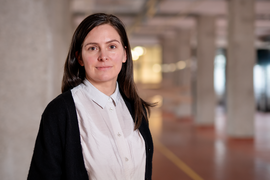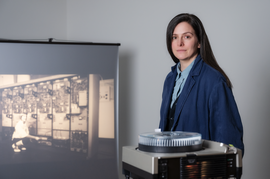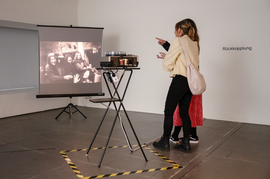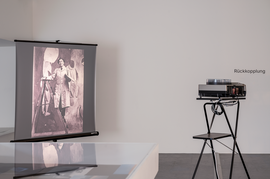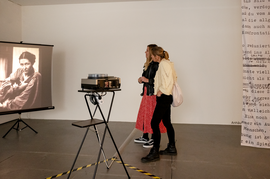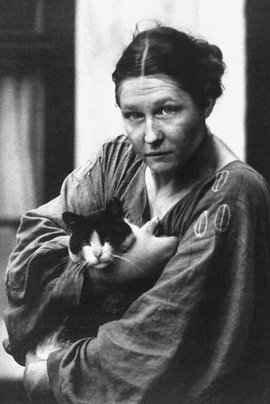Claudia Larcher
Scholarship for artists and artistic researchers at the VALIE EXPORT Center Linz
2023/2024
Claudia Larcher works with film, site-specific video animation, collage, photography, and installation. Regardless of the medium used, her work engages with architecture and with the traces of history and memory. Recently, the artist has been integrating artificial intelligence (AI) in a critical manner in her works, which she utilises as an experimental tool for her art.
Larcher studied cross-media art at the University of Applied Arts in Vienna. She has presented her work in numerous exhibitions in Austria and elsewhere. Larcher has received a number of prestigious awards and she is represented in international public collections.
A key focus of this project with the title AI and the Art of Historical Reinterpretation is to eliminate gender-specific biases in historical datasets that are used by artificial intelligence. Since AI models rely heavily on historical data, the project examines the implications of using AI to predict future societal change. It raises ethical questions, and investigates how AI can augment, rewrite, and reinterpret data archives using AI technology. It proposes filling historical gaps with AI-generated “historical images.”
AI technologies, especially the models for generating images, can be employed to rewrite history and improve our understanding of the past while closing potential gaps. This deliberate distortion of large datasets could empower marginalized groups through raising awareness, visibility, and connectivity as well as influence future decisions taken by AI models. The project critiques distortions in historiography caused by political interests, personal preferences, one-sided narratives, and the marginalization of certain people and events. FLINTA* individuals (German abbreviation: Frauen, Lesben, Intergeschlechtliche, nichtbinäre, trans und agender Personen; English: women, lesbians, intersex, non-binary, trans and agender people) have been excluded from official history books in the past and their contributions to society, art, and global history often overlooked.
The project creates a constantly growing fictional image archive of history that reinterprets the past in terms of inclusion and diversity. This collection, which can be data mined, is disseminated via digital platforms to inform and train future AI models, either actively or passively.

